-
What Diabetic Patients Need to Know About Eye Care
What Diabetic Patients Need to Know About Eye Care
To understand the importance of practicing good eye care in Chicago , diabetic patients can benefit from knowing how diabetes can increase their risk for some eye problems. In honor of Diabetic Eye Disease Awareness Month, please watch this video to learn a few important things that diabetes patients should know about eye care.
-
A Quick Guide to Diabetic Eye Disease
A Quick Guide to Diabetic Eye Disease
November is Diabetic Eye Disease Awareness Month, and if you have diabetes, then there are several things that your ophthalmologist near Chicago would want you to know about diabetic eye disease, which refers to a group of eye conditions that can affect individuals who have diabetes. Keep reading for a quick guide to these diseases.
Diabetic Retinopathy
Diabetic retinopathy is a complication of diabetes. This condition develops when blood vessels in the retina are damaged, and it is more likely to develop in diabetics with poorly controlled blood sugar. Early stages of this eye problem may not produce symptoms. As the disease progresses, you may experience symptoms such as floaters or dark spots, poor color vision, blurry vision, and vision loss.
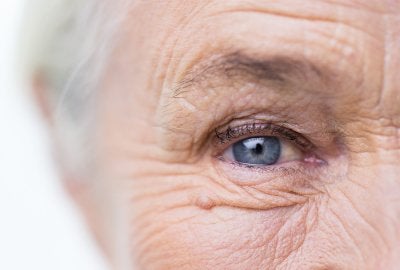
Diabetic Macular Edema
Some diabetic patients who develop diabetic retinopathy may also experience a complication of this condition called diabetic macular edema. In diabetic retinopathy, high blood sugar damages blood vessels in the retina. Sometimes, this process can result in microaneurysms that leak fluid into the retina. The excess fluid results in swelling in the retina, can affect the person’s vision, and may even result in blindness.
Cataracts
Your eye’s lens, which is located behind the iris, is supposed to be clear and is designed to focus light that passes through the eye. When the lens forms a clouded spot, the area is referred to as a cataract. A cataract develops when proteins in the lens clump together, and this problem can impair your vision and make everyday tasks a challenge. There are many risk factors for cataracts, but adults who have diabetes are much more likely to develop this problem than those who do not have diabetes. Your ophthalmologist can diagnose this condition and discuss whether you should undergo cataract surgery.
Glaucoma
Glaucoma refers to conditions that damage the eye’s optic nerve, and it is a leading cause of blindness. Early stages of this disease typically do not produce symptoms, and diabetes greatly increases the risk of glaucoma in adults. For these reasons, it’s vital to schedule regular eye care appointments with your ophthalmologist.
-
Get the Facts About Glaucoma
Too much pressure can be bad for your eyes, and it can lead to serious issues that affect your vision. Since vision loss can be permanent, you should practice excellent eye care and talk to your eye doctor in Chicago about how you can protect yourself. You might not notice your symptoms right away, and the disease can continue to progress if you don’t do anything about it. Open-angle glaucoma actually damages your optic nerve, which connects your eyes and brain. Feel free to read ahead if you would like to get the facts about glaucoma.
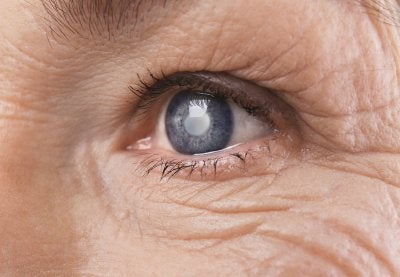
Symptoms Occur Slowly
Finding out that a given condition doesn’t always have symptoms might seem like a blessing, but sometimes it can do more harm than good. If you don’t notice anything different when you go about your daily life, you probably won’t be in a rush to meet with your eye doctor. When you first develop open-angle glaucoma, there won’t be any symptoms to notice. Everything will feel normal for a period of time, and then your peripheral vision will start to decline. If you don’t visit your eye doctor to create a treatment plan, you may lose your central vision over time as well.
Glaucoma Is Treatable, But Not Curable
Once you have lost some of your vision due to glaucoma, you can’t have it restored. This is why it’s extremely important that you visit your eye doctor for regular checkups. Since you won’t notice any symptoms of the disorder until your vision starts to go, preventative maintenance becomes even more essential. Your eye doctor can prescribe you medication to slow down the progression of the disease by lowering the pressure in your eyes. You can also talk to your eye doctor about surgery or laser trabeculoplasty.
Open-Angle Glaucoma Damages the Optic Nerve
One of the main factors involved in glaucoma is pressure. When fluid won’t properly drain from the eye, you may end up with glaucoma. This retention of fluid ultimately causes the buildup of pressure that damages your optical nerve, which can in turn result in loss of vision.
-
The Link Between Diabetes and Glaucoma
After you have been diagnosed with diabetes, your ophthalmologist will be an important member of your diabetes care team. This is because your disease places you at risk of eye health complications, including glaucoma. People with diabetes are thought to be twice as likely to develop open-angle glaucoma compared to non-diabetics. Interestingly, people who already have open-angle glaucoma are at a higher risk of developing type 2 diabetes compared to people without glaucoma. At an optical center in Chicago , diabetic patients can undergo testing for glaucoma. The sooner glaucoma is detected and treated, the better the outcome will be. Your eye doctor may ask you to return to the optical center for routine exams more frequently than patients without diabetes.
In addition to getting your vision checked regularly, you can protect your eye health and systemic health by following your primary care physician’s diabetes management guidelines. You may be asked to take oral medications or injected insulin to control your blood sugar levels. Lifestyle changes like careful meal planning and regular exercising are other essential ways to reduce the risk of diabetes-related complications like glaucoma.
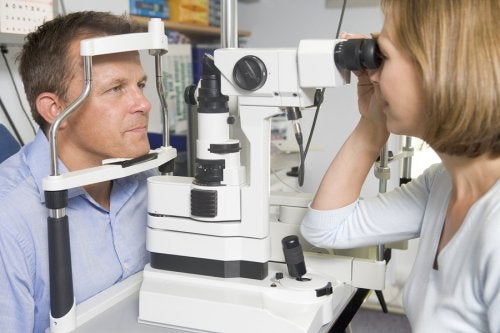
-
Caring for Your Eyes When You Have Diabetes
Regularly seeing an eye doctor is important for everyone, but even more so for people with diabetes. Read on to learn why you should regularly see your ophthalmologist near Chicago and what else you can do to practice good eye care when you have diabetes.
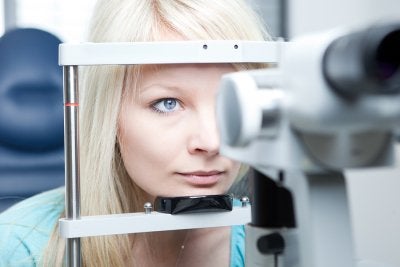
Control Your Blood Sugar
Diabetes is a condition that is characterized by high blood sugar and problems with blood sugar regulation. When there is too much glucose in your blood, this can cause damage to your body, which includes the tissues of your eyes. For this reason, maintaining healthy blood sugar levels is an important part of protecting your vision when you have diabetes. Doing this can help protect the blood vessels in your eyes and slow the progression of eye diseases. See your doctor at least twice per year for an A1C blood test, which measures what your blood glucose levels were for 2 or 3 months prior.
Manage Your Blood Pressure
High blood pressure can also be a contributing factor when it comes to diabetes and eye health. To help slow and prevent eye diseases that can be caused by diabetes, maintain healthy blood pressure levels by moderating your sodium intake, exercising, and staying at a healthy weight. If these practices aren’t enough to keep your blood pressure levels healthy, then ask your doctor about medications that help regulate blood pressure. To practice good eye care, aim for blood pressure that is under 140/80.
Visit Your Eye Doctor
Annual eye exams give your eye doctor a chance to catch the early signs of eye disease, something that is particularly important for people with diabetes. Many diabetics develop an eye problem called diabetic retinopathy, a condition that is a complication of diabetes and that can lead to blindness if left untreated. The early stages of this eye disease typically cause no symptoms, so seeing your doctor at least once per year for a comprehensive dilated eye exam is critical for protecting your eyes when you have diabetes.
-
A Closer Look at Diabetic Retinopathy
For many people, seeing an eye doctor in Chicago once per year for a comprehensive eye exam is sufficient. However, if you have diabetes, your ophthalmologist may recommend that you visit the optical center more frequently for exams. This is because diabetes places you at a high risk of diabetic retinopathy. Diabetic retinopathy doesn’t cause symptoms right away, but your ophthalmologist can detect abnormal changes and explain your treatment options.
Watch this brief animation to learn more about diabetic retinopathy. It explains that this eye disease occurs as a result of abnormalities of the small blood vessels of the retina. The blood vessels can become swollen and susceptible to leakages. Some patients may also display the growth of new, abnormal blood vessels. These changes can lead to permanent vision loss.
-
Eye Complications of Diabetes
 If you suffer from diabetes, it’s crucial that you visit your eye doctor in Chicago regularly for eye exams and eye care. Diabetes increases your risk of developing dangerous and permanent eye complications, and diabetes complications can even result in blindness. Here is a look at some common eye complications of diabetes.
If you suffer from diabetes, it’s crucial that you visit your eye doctor in Chicago regularly for eye exams and eye care. Diabetes increases your risk of developing dangerous and permanent eye complications, and diabetes complications can even result in blindness. Here is a look at some common eye complications of diabetes.Glaucoma
Once you have been diagnosed with diabetes, your risk of developing glaucoma increases by 40%. Your risk continues to increase with age, and depending upon how long you have had diabetes. Glaucoma is caused by a build up of pressure in the eyes, which causes the fluid in the eye to drain slowly and build up in the anterior chamber. This pressure can irritate or damage the blood vessels in the eye. Over time, the blood vessels become less effective at carrying blood to the retina and optic nerve, and this blood vessel damage may lead to vision loss. Your ophthalmologist may recommend medication or eye surgery to treat glaucoma.
Cataracts
People with diabetes are 60% more likely to develop cataracts than people who don’t have diabetes. If you have diabetes, you are also more likely to develop cataracts at a much younger age, and the condition may progress faster. Cataracts cause the lens of the eye to become clouded, resulting in poor vision, light sensitivity, and progressive vision problems. Your eye doctor may first recommend conservative cataract treatment via eyeglasses or contact lenses. If your cataracts are severe or aren’t remedied by vision correction, your eye doctor will refer you to a cataract surgeon for cataract surgery.
Diabetic Retinopathy
Diabetic retinopathy is one of the most serious eye complications resulting from diabetes. The condition includes two different forms of eye problems: nonproliferative and proliferative retinopathy. Nonproliferative retinopathy causes the capillaries in the back of the eye to swell, and the blood vessels become blocked as a result. Proliferative retinopathy occurs when an eye doctor doesn’t treat nonproliferative retinopathy and the condition progresses. Proliferative retinopathy causes progressively worse damage to the blood vessels, eventually leading to retinal detachment or blindness.
-
Types of Diabetic Retinopathy
 Diabetic retinopathy is one of the many health complications that can arise amongst people who suffer from diabetes. If you are diabetic, you should visit your eye doctor regularly for eye care in Chicago to reduce your risk of developing diabetic retinopathy. There are two types of diabetic retinopathy: non-proliferative diabetic retinopathy, and proliferative diabetic retinopathy.
Diabetic retinopathy is one of the many health complications that can arise amongst people who suffer from diabetes. If you are diabetic, you should visit your eye doctor regularly for eye care in Chicago to reduce your risk of developing diabetic retinopathy. There are two types of diabetic retinopathy: non-proliferative diabetic retinopathy, and proliferative diabetic retinopathy.Non-proliferative diabetic retinopathy refers to the early stages of diabetic retinopathy. In its earliest stages, patients will experience few, if any, symptoms. Non-proliferative diabetic retinopathy occurs when the blood vessels in the retina become damaged as a result of prolonged increases in a person’s blood sugar levels. Increased blood sugar causes the blood vessels to weaken and develop small bulges on their walls. These bulges are called microaneurisms, which can leak fluid into the retina and cause macular swelling.
If you do not seek treatment from an eye doctor at an optical center during the early stages of diabetic retinopathy, the condition will progress to proliferative diabetic retinopathy. In this stage, the retina becomes deprived of oxygen, and may develop scar tissue or detach. Without treatment from an ophthalmologist, proliferative diabetic retinopathy can cause blurry vision and complete vision loss.
-
Get the Facts About Diabetic Eye Disease
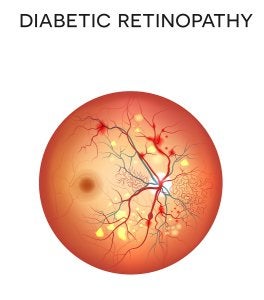 If you suffer from diabetes, you’re at an increased risk of developing a number of serious health complications, including eye problems like diabetic eye disease. For this reason, it’s crucial that you visit your ophthalmologist in Chicago regularly for eye exams and comprehensive eye care. Here are some important facts about diabetic eye disease that you should discuss with your eye doctor.
If you suffer from diabetes, you’re at an increased risk of developing a number of serious health complications, including eye problems like diabetic eye disease. For this reason, it’s crucial that you visit your ophthalmologist in Chicago regularly for eye exams and comprehensive eye care. Here are some important facts about diabetic eye disease that you should discuss with your eye doctor.What is Diabetic Eye Disease?
Diabetic eye disease is a group of eye conditions that eye doctors commonly diagnose in people who have diabetes. These eye conditions include diabetic retinopathy, diabetic macular edema, cataracts, and glaucoma. These conditions are either caused by diabetes or diabetes complications. When someone with diabetes has chronically high blood sugar, the blood vessels in the retina may become damaged, resulting in diabetic retinopathy. If untreated by an ophthalmologist, this condition may progress to diabetic macular edema, which causes a build up of fluid in the retina that eventually results in blindness.
Symptoms of Diabetic Eye Disease
In its early stages, diabetic retinopathy does not cause any significant symptoms. The longer that the condition progresses without intervention by an eye doctor, however, the more severe the symptoms will become. The retinal blood vessels can begin to bleed and cause an increase in floaters in the eye. If the condition progresses and diabetic macular edema develops, you will experience blurred vision, other changes in vision that resist attempts at vision correction, and eventually, complete vision loss.
How Your Eye Doctor Can Treat Diabetic Eye Disease
Once diabetic retinopathy progresses to diabetic macular edema, your eye doctor has a few different eye care treatment options. Depending upon your symptoms, your ophthalmologist may recommend laser eye surgery, or medication. Laser eye surgery corrects damaged and leaking blood vessels in the retina using laser heat. Your eye doctor may also try to correct macular edema via corticosteroid injections, or anti-vascular endothelial growth factor. These injections can be used in addition to, or instead of, laser eye surgery.
-
Answering Common Questions About Diabetic Eye Disease
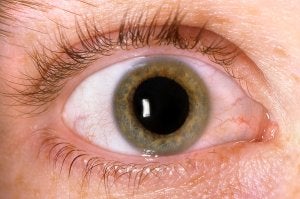 People with diabetes must visit their ophthalmologist or eye doctor in Chicago regularly for eye care. Diabetes increases your risk of developing certain eye conditions, including diabetic eye disease, vision loss, and blindness. To lower this risk, and your need for future vision correction, you should take the time to learn more about these eye conditions, start by reading these answers to common questions about diabetic eye disease.
People with diabetes must visit their ophthalmologist or eye doctor in Chicago regularly for eye care. Diabetes increases your risk of developing certain eye conditions, including diabetic eye disease, vision loss, and blindness. To lower this risk, and your need for future vision correction, you should take the time to learn more about these eye conditions, start by reading these answers to common questions about diabetic eye disease.What Eye Conditions Are Grouped Among Diabetic Eye Diseases?
Diabetic eye disease encompasses a group of eye conditions for which someone with diabetes may be at increased risk. These conditions include glaucoma, cataracts, and diabetic retinopathy. Glaucoma results from an increase of the fluid pressure within the eye, which eventually causes optic nerve damage and vision loss. Cataracts are caused by a clouding of the eye’s lens, leading to vision problems that require eye correction. The most common is diabetic retinopathy, which is caused by damage to the retinal blood vessels.
What Are Their Symptoms?
Glaucoma causes few initial symptoms, and most patients don’t realize that they have the condition until they suffer from peripheral vision loss. The condition can also cause headaches, blurred vision, eye pain, eye redness, nausea, tunnel vision, and seeing halos around lights. Cataract symptoms include vision that is cloudy, dimmed, or blurry, seeing halos around lights, light sensitivity, poor night vision, distortion of color perception, and a need for progressively increased vision correction. Symptoms of diabetic retinopathy occur later in the disease’s progression, and include floaters, blurry vision, impaired color vision, an intermittent need for vision correction, and vision loss.
How Can I Prevent Diabetic Eye Disease?
You can’t prevent diabetic eye disease, but you can significantly lower your risk of developing an eye condition, or of suffering from vision loss if an eye condition develops. If you suffer from diabetes, you must visit your ophthalmologist for eye care once a year, including a comprehensive, dilated eye exam. If your eye doctor detects symptoms of an eye condition early enough, your treatment and vision correction will be much more effective.
